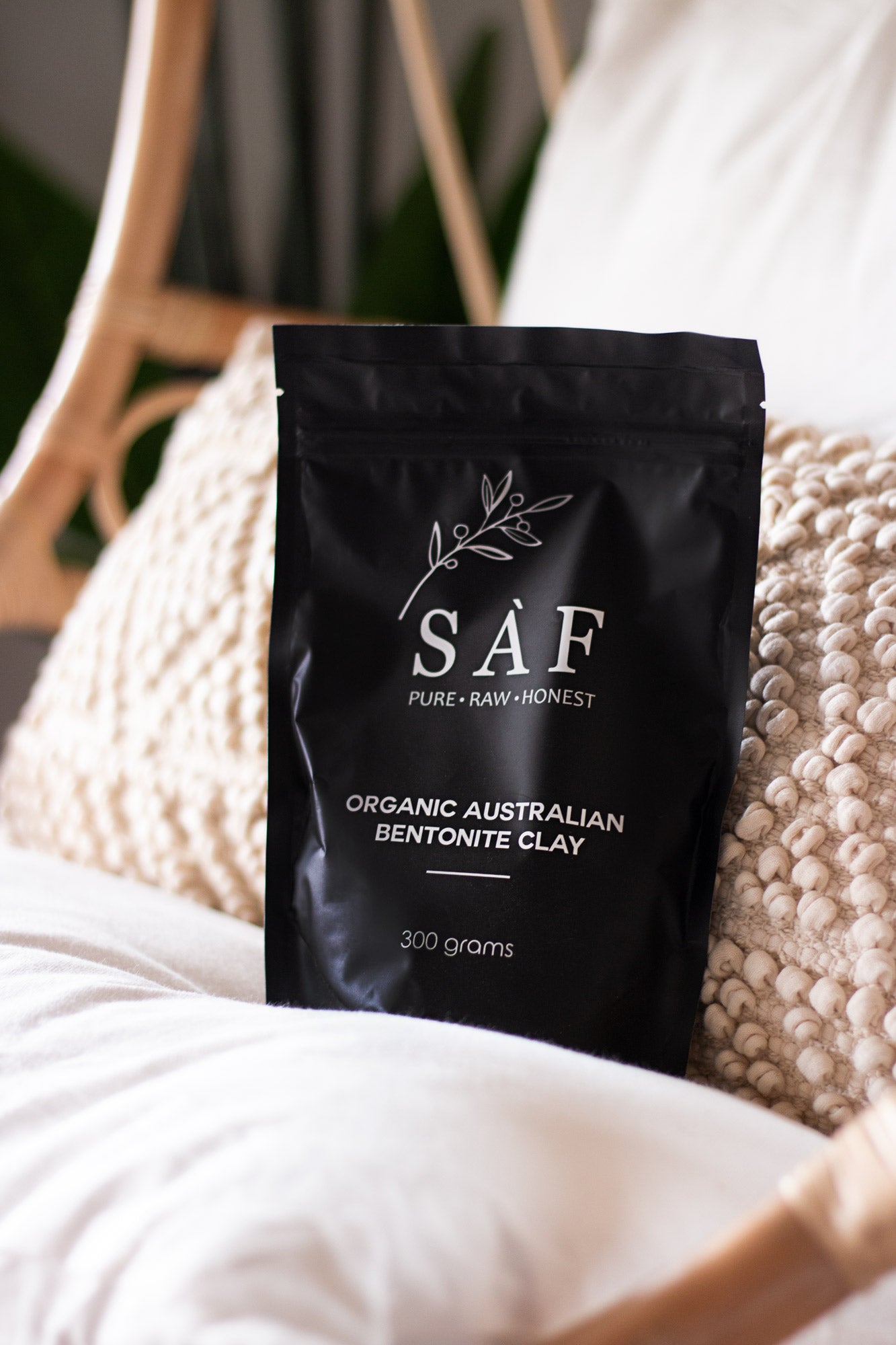Organic Bentonite Clay
This Bentonite clay is formed under sea beds from volcanic ash. It is harvested from a natural deposit in Australia, dried and then milled producing a finely ground soft powder. No chemicals have been used during the processing – resulting in clay that is Certified organic. Sodium Bentonite clay is negatively charged and can be used to assist in detoxing. It can be added to drinks, used as a mouth wash, applied to the skin or utilised in the bath.
Bentonite clay can be used externally in many ways or consumed orally.
Internally, you can take 1/2 to 1 teaspoon once per day, as many days of the week as you’d like. We recommend that you don’t consume BC internally for more than four weeks in a row.
After testing your skin’s reaction, you can use BC on your skin (or hair) several times per week for best results.
What are the benefits of bentonite clay?
- Healing skin conditions
- Aiding in detoxification processes
- Protecting against bacterial infections
- Supporting digestive and respiratory processes
- Aiding in dental health
- Supplying nutrients
- Potentially helping with weight loss
- Balancing oil production/sebum levels
- Preventing acne blemishes
- Alleviating redness due to irritation/inflammation
- Fighting allergic reactions from irritating lotions or face washes
- Treating skin ulcers
- Helping sunscreens to work effectively
- Some studies have found it can even help treat poison ivy
How It Works
Bentonite clay benefits your body in several key ways:
- It helps to expel toxins and heavy metals.
- It has antibacterial properties and fights off various pathogens responsible for disease, such as E. coli and the virus that causes staph infection.
- It contains a range of nutrients. Bentonite clay is known to have an abundance of minerals, including calcium, magnesium, silica, sodium, copper, iron and potassium.
- It nourishes skin/hair by balancing oil production, removing dead skin cells, clearing clogged pores, and fighting bacteria.
BC can help to reduce the negative effects of toxins that we encounter everyday, such as those given off from paint, cleaning supplies, markers, substances used in building homes, low-quality unpurified water, and even pesticides.
- BC essentially “seeks” toxins in the body to bind with due to its chemical composition. Then it acts like a magnet and sponge, absorbing harmful substances so they can be removed from the body.
- While in its natural state, bentonite clay has negatively charged molecules. Most toxins and heavy metals have positively charged molecules. This allows the two to bind together easily and stay united while the toxin removal process happens.
- “Heavy metal toxins” usually refer to substances like mercury, cadmium, lead and benzene. Upon binding, BC is able to help remove meats, toxins, chemicals and impurities from the gut, skin and mouth. Additionally, it’s used to reduce the presence of toxins in the food supply and animal feed.
How to Use:
- Make a clay pack for the face or body; with a paste of 1 part clay to 2 parts water. Apply for 20 minutes, before washing clay off with warm water.
- The same paste (or a 1:1 ratio) can be applied as a poultice for stings, bites, minor cuts and the like. Apply to the affected area and cover with a clean cloth or gauze for up to 2-3 hours.
- A foot bath can be prepared using 4 spoons of Bentonite and soaking for 20 min. Remove any clumps of clay before emptying the bath. Remember to rehydrate by drinking fresh water.
- Bentonite clay should not be stored in a metal container and metal utensils use only the wooden spoon provided so it doesn’t lose any of its values.
- Bentonite clay also makes a very soothing baby powder for use when there is infection or redness, it can be applied as clay to help speed up the process.
Couldn't load pickup availability






